
East London: South Africa's Seaside Gem
East London, located on the southeastern coast of South Africa, is a charming city known for its stunning beaches and warm hospitality. With the Indian Ocean waves lapping at its shores, East London offers a blend of natural beauty and cultural richness that makes it a must-visit destination. The city is home to some of the best beaches in South Africa, including Nahoon Beach and Gonubie Beach, which are perfect for swimming, surfing, and sunbathing. The East London Coast Nature Reserve offers a chance to explore the region's indigenous flora and fauna, making it an ideal spot for nature enthusiasts. East London also boasts a rich history and vibrant culture. The East London Museum, which houses the coelacanth, a prehistoric fish thought to be extinct, offers a fascinating glimpse into the past. The city’s diverse cultural heritage is reflected in its architecture, food, and festivals, providing a colorful and enriching experience for visitors. For those looking to experience local life, the bustling markets and eateries offer a taste of traditional South African cuisine. Whether you're strolling along the scenic beachfront or exploring the urban heart of the city, East London promises an unforgettable adventure.
Local tips in East London
- Visit Nahoon Beach early in the morning to avoid crowds and enjoy the sunrise.
- Check out the East London Museum for a unique look at the prehistoric coelacanth.
- Take a day trip to the East London Coast Nature Reserve for scenic hiking trails.
- Try the local seafood at one of the beachfront restaurants for a true taste of the region.
- Explore the local markets to find unique souvenirs and handmade crafts.
- Join a guided tour to learn more about the city's history and cultural significance.
East London: South Africa's Seaside Gem
East London, located on the southeastern coast of South Africa, is a charming city known for its stunning beaches and warm hospitality. With the Indian Ocean waves lapping at its shores, East London offers a blend of natural beauty and cultural richness that makes it a must-visit destination. The city is home to some of the best beaches in South Africa, including Nahoon Beach and Gonubie Beach, which are perfect for swimming, surfing, and sunbathing. The East London Coast Nature Reserve offers a chance to explore the region's indigenous flora and fauna, making it an ideal spot for nature enthusiasts. East London also boasts a rich history and vibrant culture. The East London Museum, which houses the coelacanth, a prehistoric fish thought to be extinct, offers a fascinating glimpse into the past. The city’s diverse cultural heritage is reflected in its architecture, food, and festivals, providing a colorful and enriching experience for visitors. For those looking to experience local life, the bustling markets and eateries offer a taste of traditional South African cuisine. Whether you're strolling along the scenic beachfront or exploring the urban heart of the city, East London promises an unforgettable adventure.
When is the best time to go to East London?
Iconic landmarks you can’t miss
Hemingways Casino
Explore the thrilling gaming and diverse entertainment options at Hemingways Casino in East London, a must-visit hub for tourists.
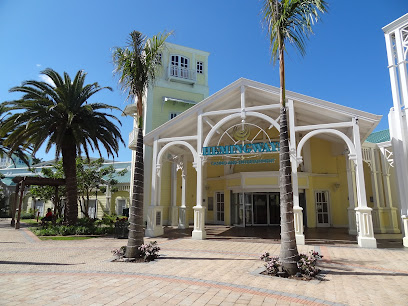
Python Park Mashie Golf Course
Experience the serene beauty of Python Park Mashie Golf Course in East London, where nature and golfing come together for an unforgettable day.
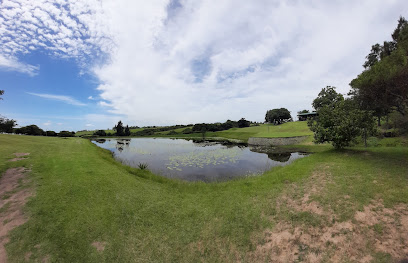
East London Museum
Explore the East London Museum, a captivating destination showcasing the rich cultural heritage and history of the Eastern Cape.
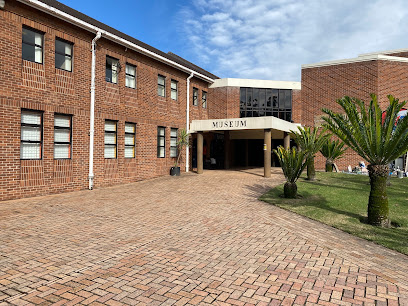
Gonubie Boardwalk
Explore the stunning Gonubie Boardwalk in East London, a beautiful coastal escape perfect for walks, birdwatching, and breathtaking sunsets.
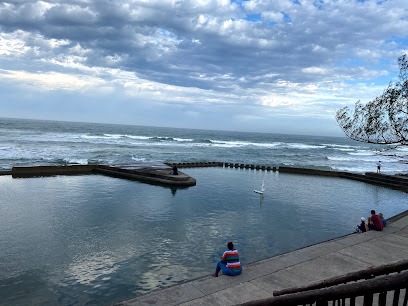
East London Zoo
Discover the rich diversity of wildlife at East London Zoo, a family-friendly attraction in Parkside, South Africa, perfect for animal lovers and adventurers.
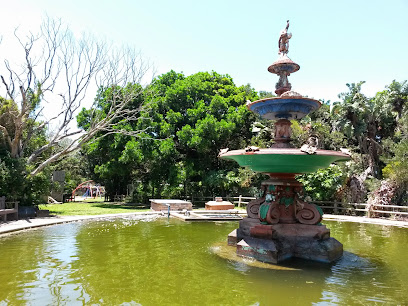
Aquarium
Explore the fascinating marine life at the East London Aquarium, an educational and fun destination for families and ocean lovers alike.
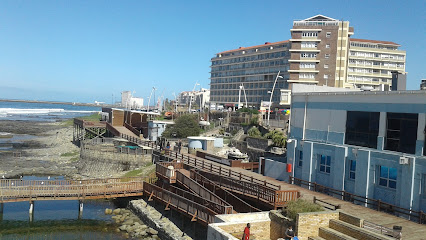
Kwelera National Botanical Garden
Explore the natural beauty and biodiversity of Kwelera National Botanical Garden, a serene escape near the Kwelera River Mouth in South Africa.
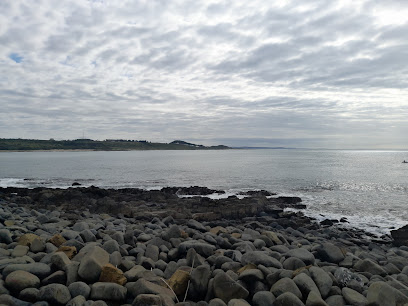
Kwa Mnguni Scenery Park, East London
Experience the best of South African grilling at Kwa Mnguni Scenery Park, where flavor meets stunning scenery in East London.
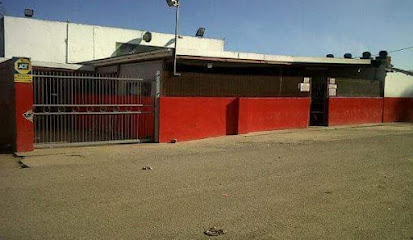
Drifters Raceway Theme Park
Experience exhilarating rides and family fun at Drifters Raceway Theme Park in East London, where adventure awaits for everyone!
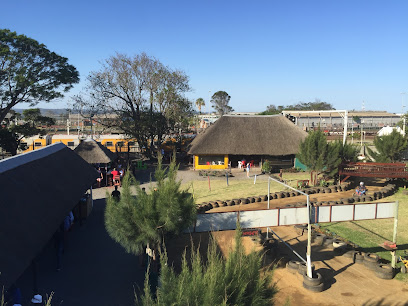
Ann Bryant Art Gallery
Explore the rich artistic heritage of East London at the Ann Bryant Art Gallery, where creativity meets community in a stunning setting.
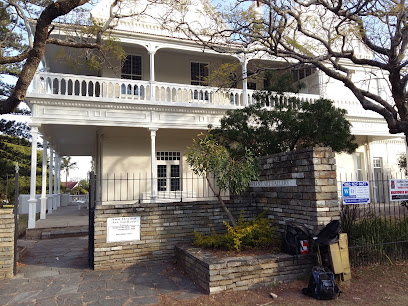
Alien Station
Explore Alien Station in East London, South Africa — where creativity meets skilled artistry in a vibrant tattoo shop experience.
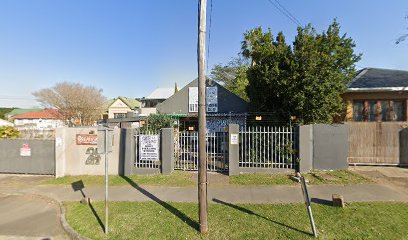
East London Port
Experience the bustling maritime life at East London Port, a key gateway to the Indian Ocean and a vibrant hub of activity in South Africa.
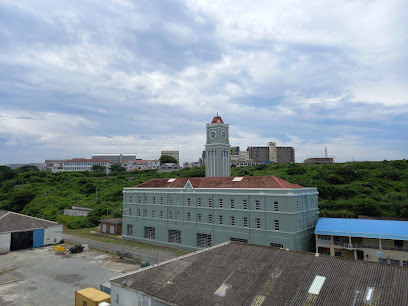
Nahoon Estuary Nature Reserve
Explore the untouched beauty of Nahoon Estuary Nature Reserve, a haven for nature lovers and wildlife enthusiasts in East London.
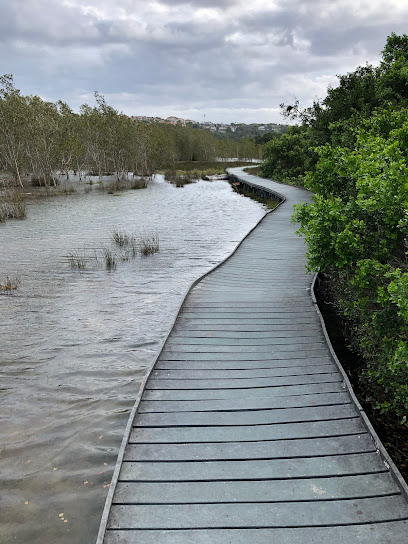
Nahoon Point Lighthouse
Discover the rich maritime history and stunning coastal views at Nahoon Point Lighthouse, a must-see tourist attraction in East London, South Africa.
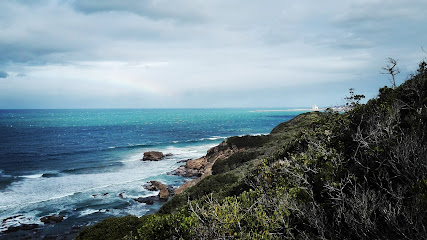
Bats' Cave
Experience the breathtaking beauty of Bats' Cave, East London's premier hiking destination, where nature and adventure come together.
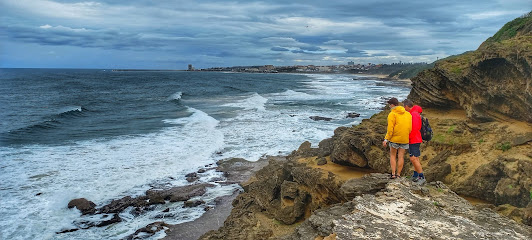
Unmissable attractions to see
Ebuhlanti
Explore the natural beauty of Ebuhlanti Park in East London, a tranquil escape for relaxation and outdoor activities in the heart of nature.
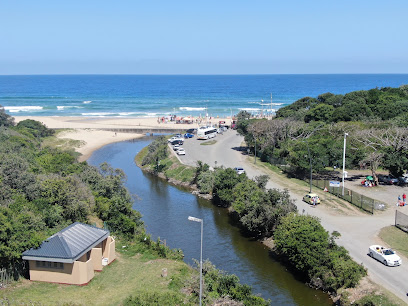
Python Park Mashie Golf Course
Discover Python Park Mashie Golf Course in East London, a scenic golfing retreat perfect for all skill levels, surrounded by nature's beauty.
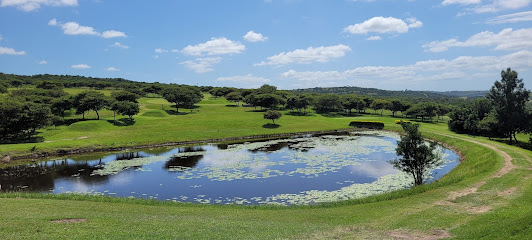
East London Museum
Explore the East London Museum, where South African heritage and natural history come together in a captivating experience for tourists.
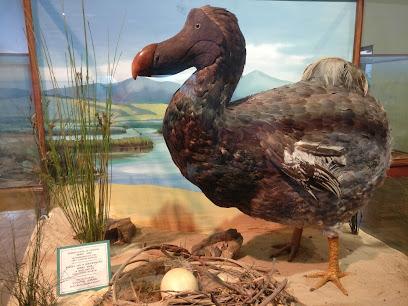
Gonubie Boardwalk
Explore the breathtaking Gonubie Boardwalk in East London, a scenic coastal pathway perfect for strolls, wildlife spotting, and soaking up the sun.
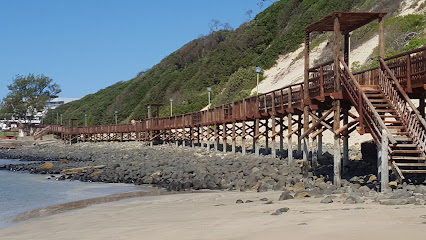
Aquarium
Explore the East London Aquarium, a captivating marine sanctuary showcasing diverse aquatic life and dedicated to marine conservation.
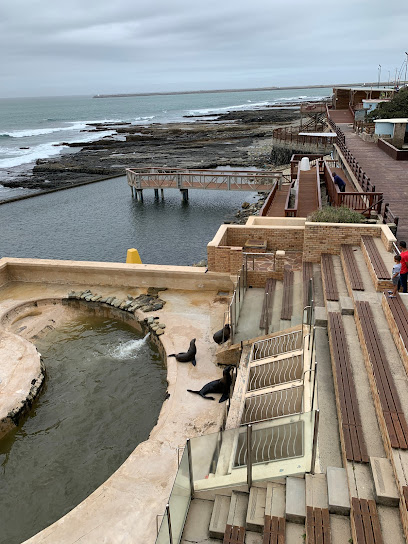
Dassie Trail
Explore the stunning Dassie Trail in East London, South Africa – a nature lover's paradise filled with wildlife, scenic views, and peaceful pathways.
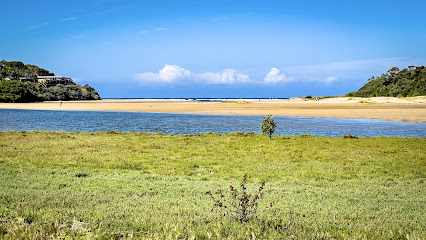
James Pearce Park
Explore the lush landscapes and serene atmosphere of James Pearce Park, a tranquil escape in the heart of East London, perfect for families and nature lovers.
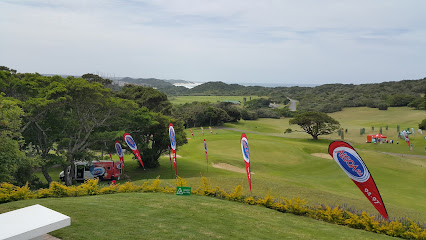
Orient Beach
Experience the tranquility and beauty of Orient Beach, a perfect seaside escape in East London, South Africa, ideal for relaxation and adventure.
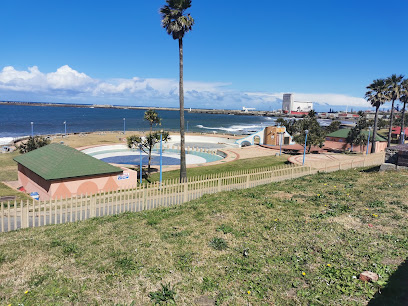
Electric Avenue
Experience the thrill of Electric Avenue, East London's premier amusement center for family fun, excitement, and unforgettable memories.
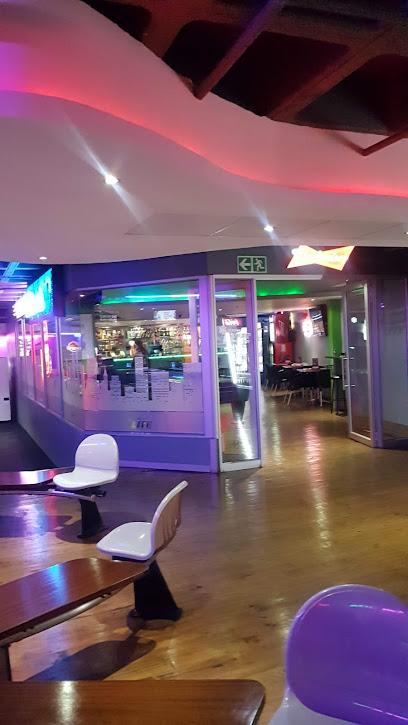
Nahoon Estuary Nature Reserve
Experience the serene beauty of Nahoon Estuary Nature Reserve, a natural haven in East London, South Africa, for nature lovers and outdoor enthusiasts.
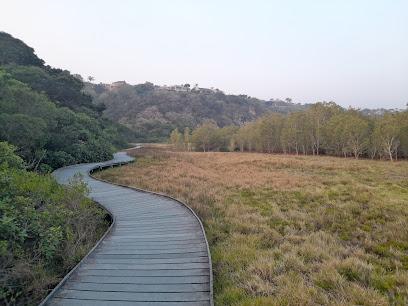
Nahoon Point Lighthouse
Explore the rich maritime history and breathtaking views at Nahoon Point Lighthouse, a top tourist attraction along East London's stunning coastline.
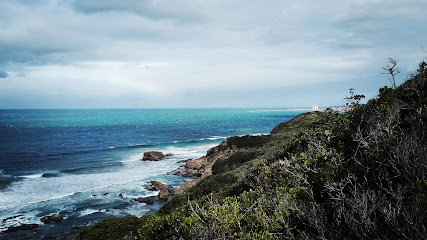
Bats' Cave
Explore the enchanting Bats' Cave in East London, a unique hiking destination blending natural beauty and ecological wonder.
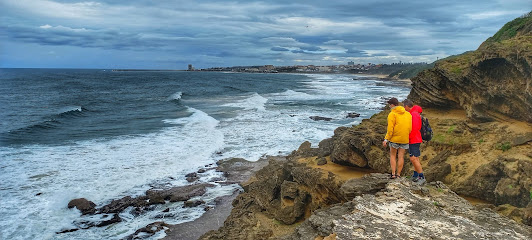
Vincent Road Play Park
Experience the tranquility and beauty of Vincent Road Play Park, a family-friendly oasis in East London perfect for relaxation and outdoor activities.
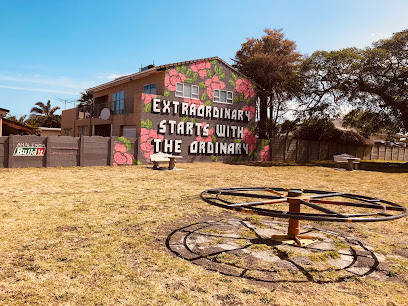
Hood Point Lighthouse
Explore the historic Hood Point Lighthouse in East London, where maritime history meets breathtaking coastal views.
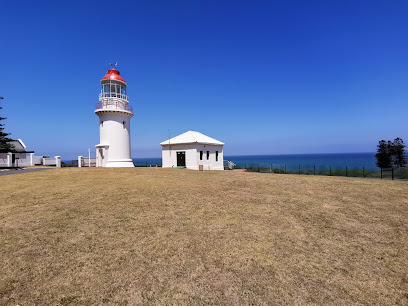
On The Rocks Nahoon River Cruises
Discover the beauty of the Nahoon River with scenic cruises, wildlife spotting, and relaxation in East London, South Africa.
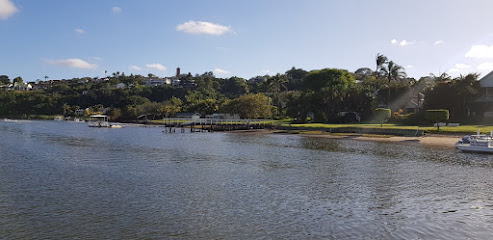
Essential places to dine
Windmill Roadhouse
Experience delicious local and international cuisine at Windmill Roadhouse in East London – where every meal is a celebration of flavor.
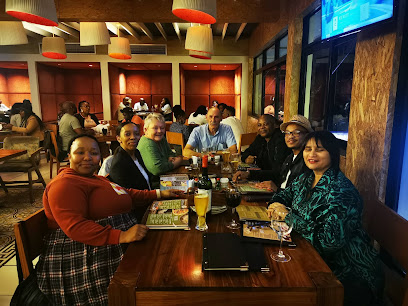
Buccaneers
Discover Buccaneers: East London's premier restaurant and nightlife destination with stunning ocean views and an unforgettable atmosphere.
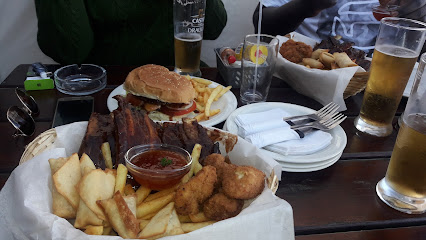
Sanook Eatery
Experience authentic South African cuisine at Sanook Eatery in East London - where every meal tells a story.
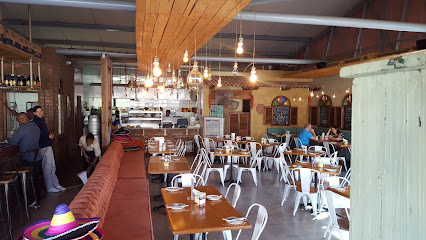
Sea Spirit Fish Market Restaurant
Discover fresh seafood delights at Sea Spirit Fish Market Restaurant in East London—where every dish is a celebration of coastal cuisine.
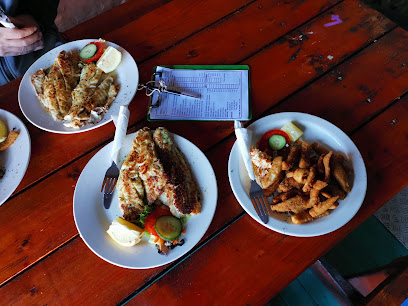
Grazia Fine Food & Wine
Experience culinary excellence at Grazia Fine Food & Wine in East London - where every dish tells a story.
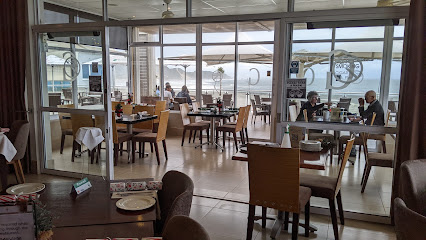
Sanook Cafe, East London
Experience exceptional dining at Sanook Cafe in East London—where local flavors meet cozy ambiance.
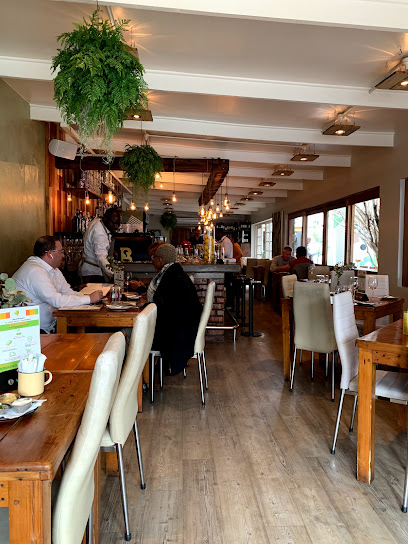
Pinecreek Restaurant & Farmstall
Discover Pinecreek Restaurant & Farmstall: A Culinary Haven in East London Offering Fresh Flavors and Scenic Views.
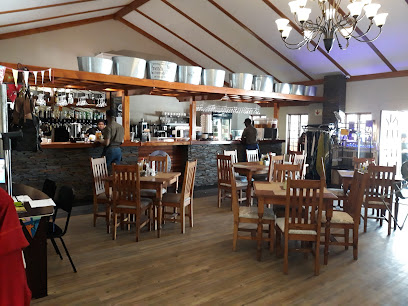
Silver Eagle Spur Steak Ranch
Discover family-friendly dining at Silver Eagle Spur Steak Ranch in East London – where delicious steaks and hearty breakfasts create unforgettable experiences.
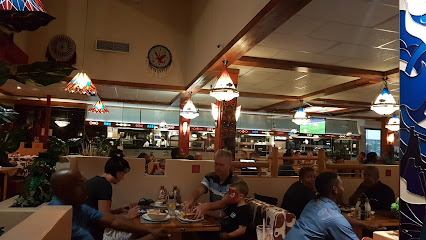
Nando's Oxford Street (East London)
Experience the zest of South African cuisine at Nando's Oxford Street with its iconic peri-peri chicken and vibrant atmosphere.
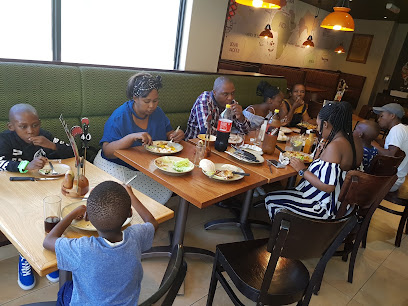
Lavender Blue Market, Café & Deli
Experience culinary bliss at Lavender Blue Market - your ultimate destination for fresh food, unique gifts, and local charm in East London.
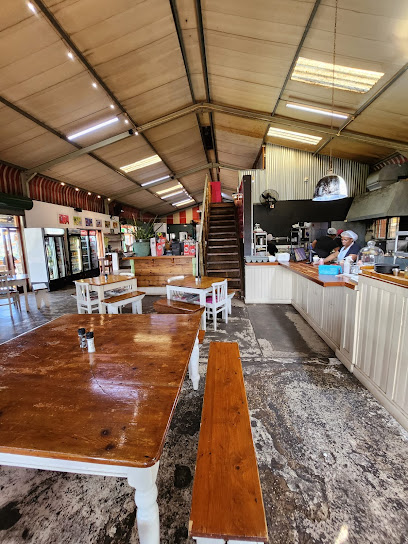
Table 58 Brewing
Discover local craft beers and delicious cuisine at Table 58 Brewing in East London – your perfect culinary escape.
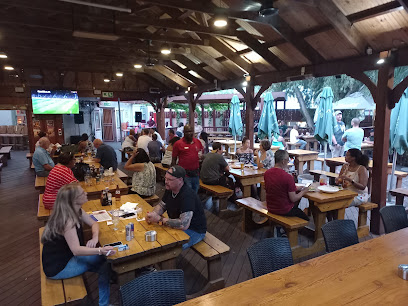
Jules On Jarvis
Experience culinary excellence at Jules On Jarvis - where local flavors meet exceptional service in East London.
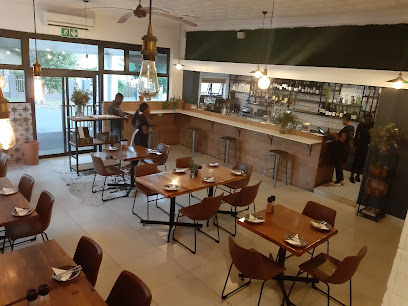
Café Neo
Discover Café Neo in East London: A delightful restaurant offering fresh flavors and cozy ambiance perfect for tourists.
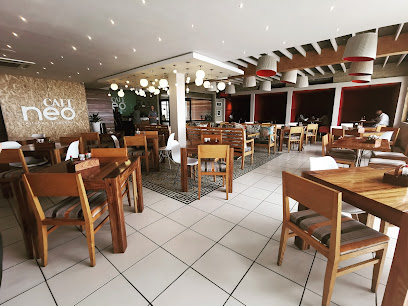
THE BEACH BREAK
Experience coastal dining at The Beach Break in Nahoon - where delicious flavors meet stunning ocean views.
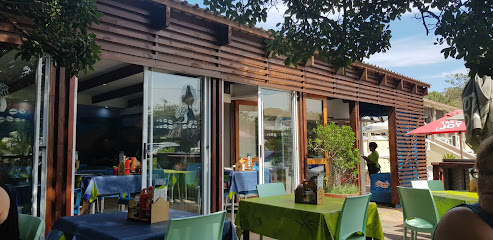
Las Vegas Spur Steak Ranch
Experience family-friendly dining at Las Vegas Spur Steak Ranch with delicious steaks, burgers, and breakfast options in East London.
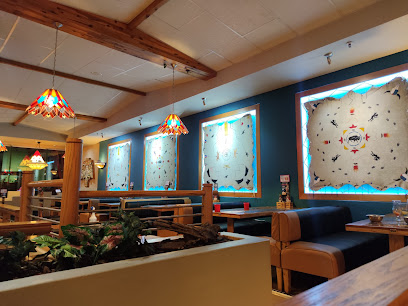
Markets, malls and hidden boutiques
Hemingways Mall
Explore Hemingways Mall: A shopping and entertainment haven in East London with diverse stores, dining, and fun for the whole family.
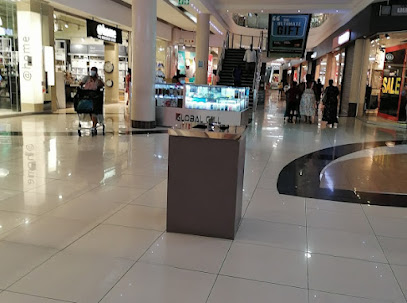
Beacon Bay Crossing
Discover the ultimate shopping experience at Beacon Bay Crossing, East London's vibrant mall with diverse shops, dining, and entertainment.
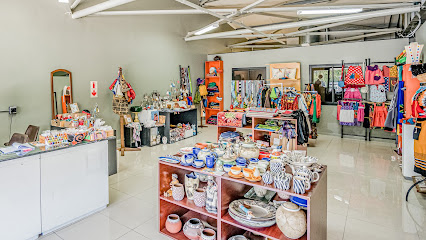
Oasis Outfitters
Discover stylish clothing and footwear at Oasis Outfitters in East London, where local fashion meets exceptional service.
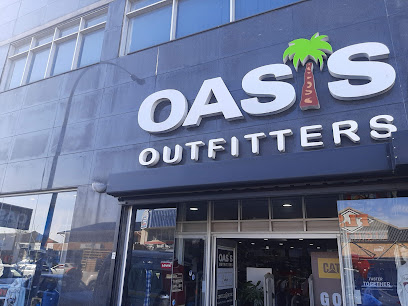
G-Star RAW Store
Explore the G-Star RAW Store in East London for premium denim, fashionable clothing, and stylish accessories for men and women.

The Craft Gallery
Discover exquisite handmade crafts and unique gifts at The Craft Gallery in East London, a treasure trove for art lovers and souvenir seekers alike.
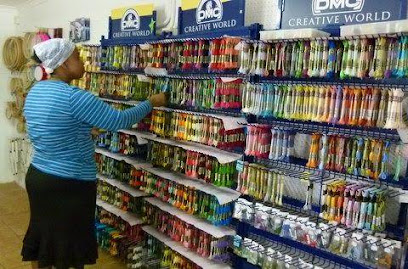
CHESS INTERNATIONAL
Explore stylish menswear at CHESS INTERNATIONAL in East London, where fashion meets affordability and personalized service.
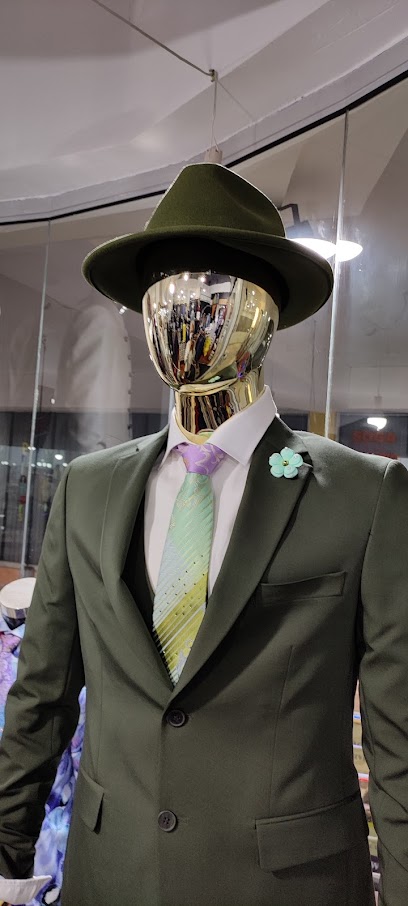
Exotic Marigold Boutique
Explore the vibrant fashion scene at Exotic Marigold Boutique in East London, offering unique styles and local designer pieces.
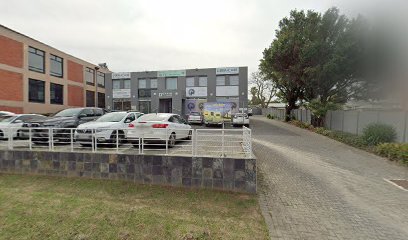
Fabulous decor and gifts
Explore Fabulous Decor and Gifts in East London for unique home goods and memorable souvenirs that embody South African charm.
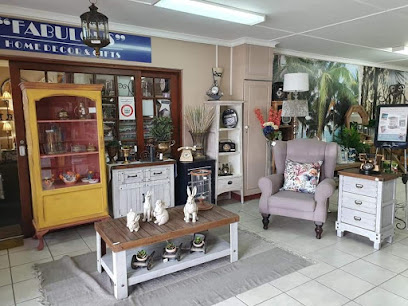
The Crazy Store Gonubie
Explore The Crazy Store Gonubie for a vast selection of unique gifts, toys, and home goods, perfect for every occasion and cherished memories.

The Crazy Store Amalinda
Explore The Crazy Store Amalinda for unique gifts, toys, and home goods at unbeatable prices – perfect for all your shopping needs!
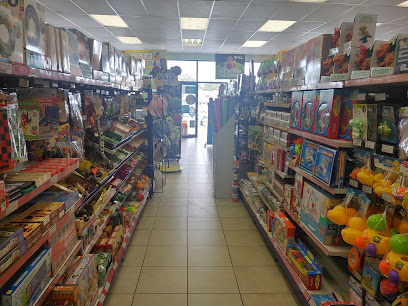
East London
Explore the vibrant shopping scene in East London, where local culture meets diverse retail and dining experiences for every tourist.
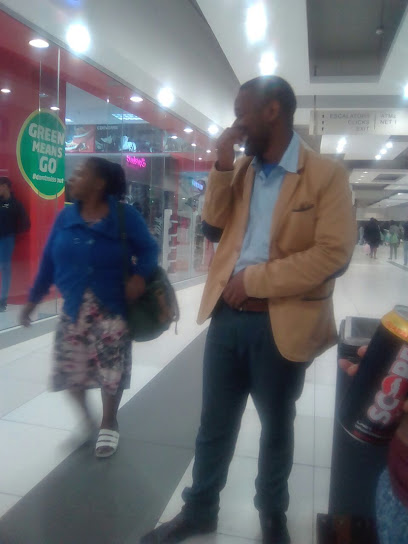
The Crazy Store Beacon Bay
Explore The Crazy Store Beacon Bay, your ultimate destination for unique gifts, fun toys, and essential home goods at unbeatable prices.
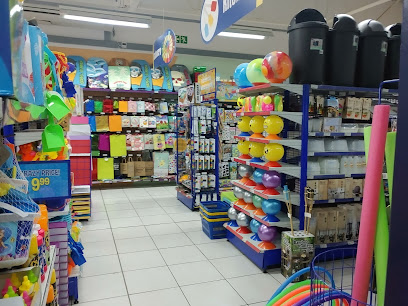
Gussie’s East London
Explore Gussie's East London for unique gifts, quality stationery, and creative scrapbooking supplies amidst a charming shopping atmosphere.
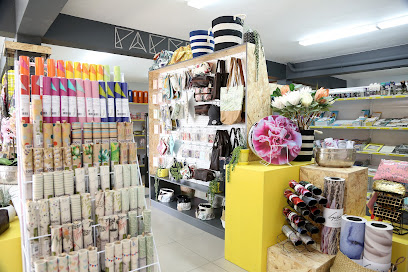
The Crazy Store Hemingways
Explore a colorful variety of gifts, toys, and unique finds at The Crazy Store Hemingways in East London, where fun meets affordability.
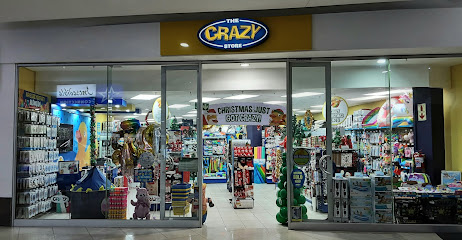
AFRICAN CURIOS EAST LONDON
Explore the vibrant craftsmanship of South Africa at African Curios in East London, a unique craft store showcasing local artistry.
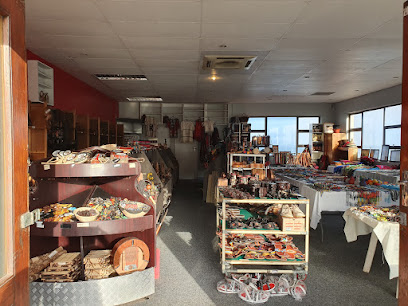
Essential bars & hidden hideouts
Buccaneers
Experience the vibrant nightlife of East London at Buccaneers, a bar and nightclub that promises an unforgettable night of music, dancing, and delicious food.
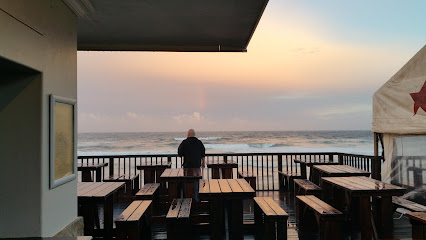
Table 58 Brewing
Experience the vibrant atmosphere and craft brews at Table 58 Brewing, East London's top bar and restaurant destination for tourists and locals alike.
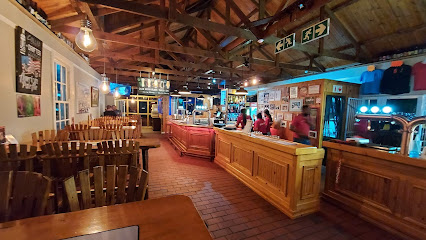
Sunsets On Beach
Discover the perfect coastal escape at Sunsets On Beach, where vibrant nightlife meets stunning ocean views in East London.
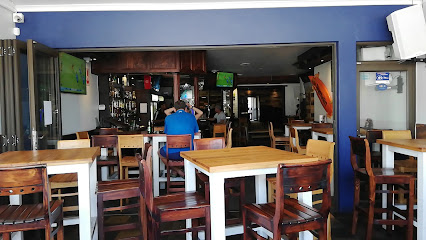
Abbotsford Arms
Discover the lively Abbotsford Arms in East London, where delicious food, refreshing drinks, and a vibrant atmosphere await every visitor.
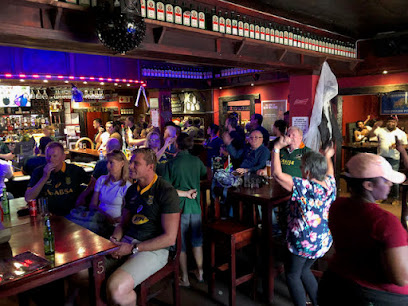
Fanas Pub And Braai
Discover the essence of South African hospitality at Fanas Pub and Braai, where great food, drinks, and lively entertainment await you.
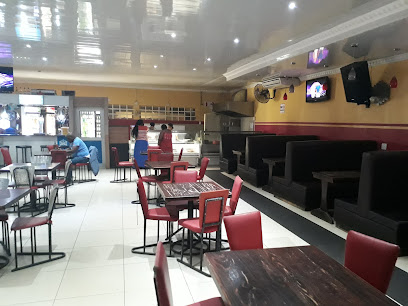
Ncibane's Lifestyle PUB & GRILL
Explore Ncibane's Lifestyle PUB & GRILL, where delicious grilled dishes meet vibrant local culture in East London.
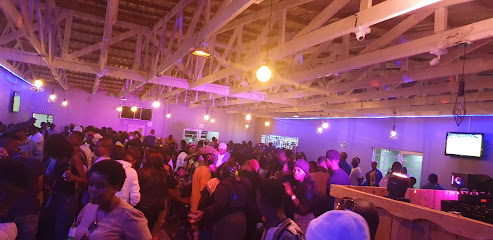
Cannons Pub
Discover the vibrant atmosphere and refreshing drinks at Cannons Pub, the go-to bar in East London's Nahoon area for tourists and locals alike.
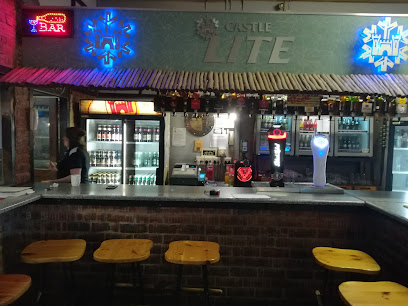
Thyme Fusion Gin Bar & Eatery
Discover Thyme Fusion Gin Bar & Eatery, where exquisite cuisine meets artisanal gin in the heart of East London's Abbotsford.
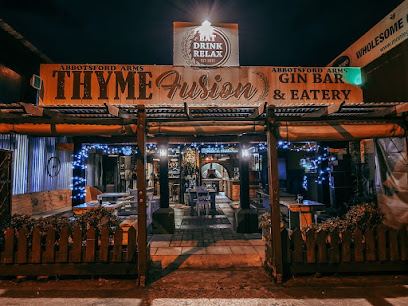
Pub on Frere
Discover the heart of East London at Pub on Frere, where local cuisine meets a vibrant atmosphere for an unforgettable dining experience.
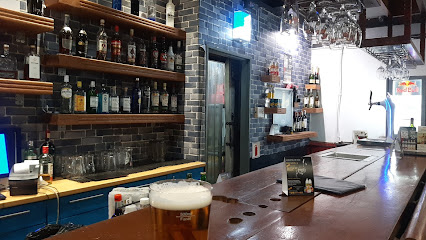
Dezzys Pub
Experience the vibrant local culture at Dezzys Pub in Gonubie, East London, where drinks and camaraderie flow in a welcoming atmosphere.
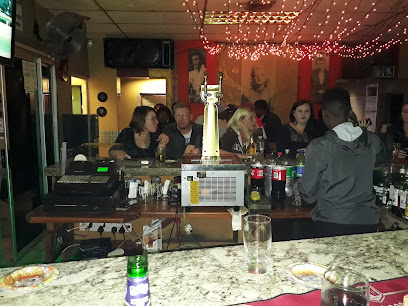
Cindy's Wine and Dine Sports Bar
Discover the vibrant ambiance of Cindy's Wine and Dine Sports Bar in East London, where delicious food and great drinks meet sports excitement.
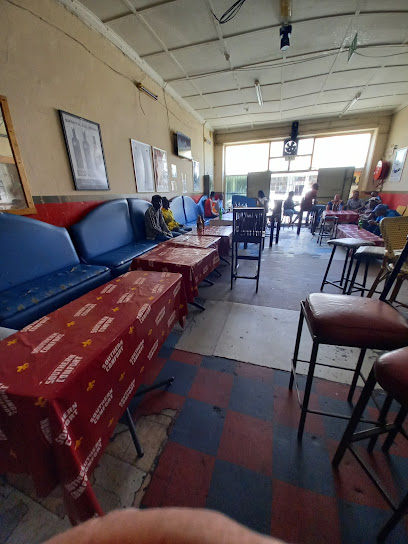
Swarries Bar
Experience the vibrant nightlife of East London at Swarries Bar, where local culture meets a lively atmosphere and refreshing drinks.
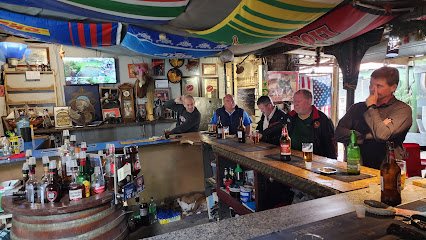
The Naughty Lizard
Discover the lively atmosphere and delightful drinks at The Naughty Lizard, East London's favorite bar for locals and tourists alike.
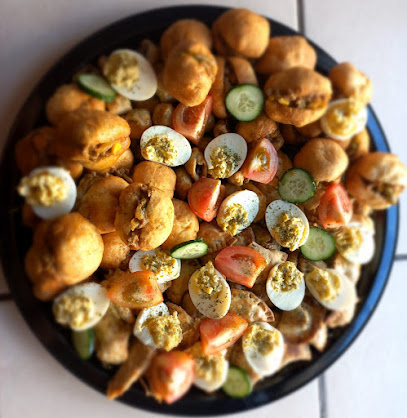
The CORNER PUB and RESTAURANT
Experience the vibrant atmosphere and delectable cuisine at The Corner Pub and Restaurant, East London's favorite spot for locals and tourists alike.
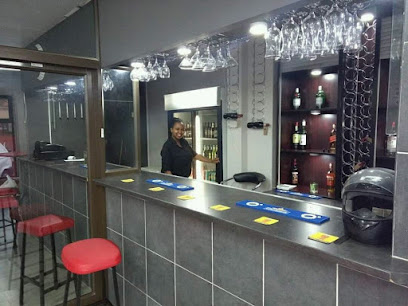
Local Phrases
-
- HelloHoezit
[ho-zit] - GoodbyeCheers
[cheers] - YesJa
[ya] - NoNee
[nee] - Please/You're welcomePleasure
[pleh-zhuh] - Thank youDankie
[dahn-kee] - Excuse me/SorrySorry
[saw-ree] - How are you?Howsit
[how-zit] - Fine. And you?Lekker. En jy?
[le-kuh. en y] - Do you speak English?Can you speak Engels?
[kan yoo speak eng-uhls] - I don't understandEk verstaan nie
[ek verstahn nee]
- HelloHoezit
-
- I'd like to see the menu, pleaseEk wil die spyskaart sien, asseblief
[ek vil dee spay-skaart seen, us-suh-bleef] - I don't eat meatEk eet nie vleis nie
[ek ayt nee fleys nee] - Cheers!Gesondheid!
[guh-sund-hate] - I would like to pay, pleaseEk wil betaal, asseblief
[ek vil buh-taal, us-suh-bleef]
- I'd like to see the menu, pleaseEk wil die spyskaart sien, asseblief
-
- Help!Hulp!
[hulp] - Go away!Gaan weg!
[gahn vehg] - Call the Police!Bel die Polisie!
[bel dee poh-lee-see] - Call a doctor!Bel 'n dokter!
[bel un dohk-tuh] - I'm lostEk is verlore
[ek is fuh-ruh-ruh] - I'm illEk is siek
[ek is seek]
- Help!Hulp!
-
- I'd like to buy...Ek wil koop...
[ek vil kohp] - I'm just lookingEk kyk net
[ek kayk neht] - How much is it?Hoeveel kos dit?
[ho-veel kohs dit] - That's too expensiveDit is te duur
[dit is tuh dyoor] - Can you lower the price?Kan jy die prys verlaag?
[kan y die prays fuh-lahg]
- I'd like to buy...Ek wil koop...
-
- What time is it?Hoe laat is dit?
[ho laht is dit] - It's one o'clockDit is een uur
[dit is ayn ur] - Half past (10)Half tien
[hahf teen] - MorningOggend
[oh-ghent] - AfternoonMiddag
[mid-ahg] - EveningAand
[ahnt] - YesterdayGister
[ghis-tuh] - TodayVandag
[fun-dahg] - TomorrowMôre
[moh-ruh] - 1Een
[ayn] - 2Twee
[twee] - 3Drie
[dree] - 4Vier
[feer] - 5Vyf
[fayf] - 6Ses
[sehs] - 7Sewe
[seh-weh] - 8Agt
[ahg-t] - 9Nege
[nee-ye] - 10Tien
[teen]
- What time is it?Hoe laat is dit?
-
- Where's a/the...?Waar is 'n/die...?
[vahr is un/dee] - What's the address?Wat is die adres?
[waht is dee uh-dres] - Can you show me (on the map)?Kan jy my wys (op die kaart)?
[kan y may vays (op dee kart)] - When's the next (bus)?Wanneer is die volgende (bus)?
[vahn-neer is dee fuhl-guhn-duh (bus)] - A ticket (to ....) 'n Kaartjie (na ....)
[un kaah-chi (nah)]
- Where's a/the...?Waar is 'n/die...?
History of East London
-
The area now known as East London was originally inhabited by the Khoisan people, who were later joined by the Xhosa tribes. These indigenous groups lived off the land, practicing agriculture, cattle herding, and hunting. The region's rivers and fertile lands made it an ideal location for sustaining their communities.
-
East London was officially established as a British settlement in 1847. The British recognized the strategic importance of the Buffalo River as a port and established the town to serve as a supply base during the frontier wars with the Xhosa people. The town was named 'East London' in an attempt to replicate the success and strategic importance of London in the United Kingdom.
-
The construction of a proper port began in 1872, transforming East London into a key player in the regional economy. The port facilitated the export of wool, hides, and other agricultural products, fostering growth and attracting a diverse population of settlers, including British, German, and other European immigrants.
-
The completion of the railway line connecting East London to King William's Town in 1876 marked a significant development. This railway line was crucial in enhancing trade and communication between the coastal city and the inland regions, further establishing East London as a commercial hub.
-
During the apartheid era, East London, like many South African cities, was deeply affected by racial segregation policies. Areas were divided, with the city center predominantly reserved for white people. However, East London also became a center for anti-apartheid activism. The East London Riots of 1952 were significant, as local residents protested against the discriminatory laws, leading to a brutal crackdown by the authorities.
-
Following the end of apartheid in 1994, East London underwent significant changes. Efforts were made to integrate the city, promote economic development, and improve living conditions for all residents. The establishment of the East London Industrial Development Zone (IDZ) in the early 2000s aimed to attract investment, create jobs, and stimulate economic growth.
-
East London is rich in cultural heritage, hosting various festivals and events that celebrate its diverse population. The annual Buffalo City Festival showcases local music, dance, and culinary traditions, drawing visitors from across the region. The city also preserves its history through museums like the East London Museum, which houses the coelacanth, a rare fish thought to be extinct until it was rediscovered off the coast in 1938.
East London Essentials
-
East London is located on the southeastern coast of South Africa in the Eastern Cape Province. The city is served by East London Airport (ELS), which offers direct flights from major South African cities such as Johannesburg, Cape Town, and Durban. Alternatively, visitors can reach East London by road via the N2 highway, which connects the city to Durban and Cape Town. Long-distance buses and car rentals are also available for those who prefer a scenic road trip.
-
East London has a variety of transportation options. The city has a reliable minibus taxi system, which is the most common mode of public transport. Metered taxis and ride-sharing services like Uber are also available. For those who wish to explore the city at their own pace, car rentals are readily accessible. Walking and cycling are convenient for short distances, especially along the scenic beachfront areas.
-
The official currency in South Africa is the South African Rand (ZAR). Credit and debit cards are widely accepted in hotels, restaurants, and shops. ATMs are plentiful throughout East London, but it is wise to carry some cash for smaller establishments or in case of emergencies. International travelers can exchange their foreign currency at banks and exchange bureaus located in the city.
-
While East London is generally safe for tourists, it is important to remain vigilant and take standard precautions. Avoid walking alone at night in secluded areas, and be cautious in crowded places where pickpocketing can occur. Some areas to be cautious of include Duncan Village and Mdantsane, which have higher crime rates. Always use reputable transportation services and avoid displaying valuable items openly.
-
In case of emergency, dial 10111 for police assistance, 10177 for medical emergencies, or 112 from a mobile phone for general emergencies. East London has several well-equipped hospitals, including the East London Private Hospital and Cecilia Makiwane Hospital. Pharmacies are also widely available for minor health issues. It is recommended to have travel insurance that covers medical emergencies during your stay.
-
Fashion: Do dress casually and comfortably, but avoid wearing overly revealing clothing, especially in more conservative areas. Religion: Do respect local customs and traditions. When visiting religious sites, dress modestly and remove your hat when entering. Public Transport: Do be polite and patient when using minibus taxis, as they can be crowded. Don’t eat or drink on public transport. Greetings: Do greet people with a friendly 'hello' or 'howzit'. A handshake is common, but be aware of personal space. Eating & Drinking: Do try local dishes such as 'bunny chow' and 'braai'. Don’t refuse hospitality, as it is considered impolite.
-
To experience East London like a local, visit the local markets such as the Esplanade Flea Market for unique crafts and fresh produce. Engage with locals at popular spots like Nahoon Beach and Gonubie Beach, which are perfect for surfing and picnicking. Don’t miss out on the East London Museum, home to the coelacanth, a rare fish thought to be extinct. For a unique experience, take a guided tour to the nearby Inkwenkwezi Private Game Reserve to see South Africa's wildlife up close.
Trending Landmark in East London
-
Hemingways Casino
-
Python Park Mashie Golf Course
-
East London Museum
-
Gonubie Boardwalk
-
East London Zoo
-
Aquarium
-
Kwelera National Botanical Garden
-
Kwa Mnguni Scenery Park, East London
-
Drifters Raceway Theme Park
-
Ann Bryant Art Gallery
-
Alien Station
-
East London Port
-
Nahoon Estuary Nature Reserve
-
Nahoon Point Lighthouse
-
Bats' Cave
Nearby Cities to East London
-
Things To Do in Quthing
-
Things To Do in Mohale's Hoek
-
Things To Do in Mafeteng
-
Things To Do in Thaba-Tseka
-
Things To Do in Maseru
-
Things To Do in Mokhotlong
-
Things To Do in Teyateyaneng
-
Things To Do in Bloemfontein
-
Things To Do in Leribe
-
Things To Do in Durban
-
Things To Do in Butha-Buthe
-
Things To Do in Kimberley
-
Things To Do in Johannesburg
-
Things To Do in Malkerns
-
Things To Do in Big Bend










